The SAC is excited to be continuing The Physics Hour, a lecture series featuring researchers from Canadian institutions who want to share their work with students. This virtual series will be hosted online over Zoom. Talks will include a Q&A session so the audience can connect with speakers
We are inviting experts across a wide range of fields including astrophysics, condensed matter physics, medical physics, and more! This is an excellent opportunity for undergraduate students to become familiar with a wide range of physics fields and ask questions directly to experts in the field about their research and how to succeed in this career path.
For updates, check this site our our social media.
Heather Russell – Particle Physics with ATLAS
JOIN THE LIVESTREAM View the recording
Tuesday, 5 August, 6:00PM Eastern
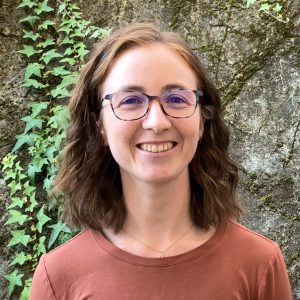
Heather is an assistant professor in Physics and Astronomy at the University of Victoria. Her research in experimental particle physics aims to understand the composition of the universe at the smallest possible scale, in hopes of answering some of the biggest unsolved mysteries in physics: why do we live in a matter-dominated universe, and what is dark matter? She’ll talk about how we answer these questions with the Large Hadron Collider, what it’s like to be a member of the multi-national ATLAS collaboration, and what can be done if our particle detectors are missing the new particles we’re looking for.
Pascal Audet – Geophysics
JOIN THE LIVESTREAM View the recording
Monday, 11 August, 6:00PM Eastern
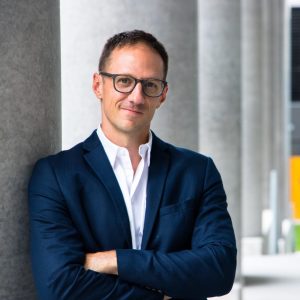
Using earthquake waves to decipher Earth’s tectonic engine: Professor Pascal Audet utilizes seismic waves generated by distant earthquakes to investigate the Earth’s internal structure and illuminate the complex environment hosting earthquakes and volcanoes. His team is engaged in a diverse set of research projects and approaches, ranging from collecting seismic data at sea to developing physics-informed seismic wave analysis and modelling, as well as software development. For further information, visit his website here (https://www.uogeophysics.com).
Avery Berman – Health Physics
JOIN THE LIVESTREAM View the recording
Tuesday, 19 August, 6:00PM Eastern
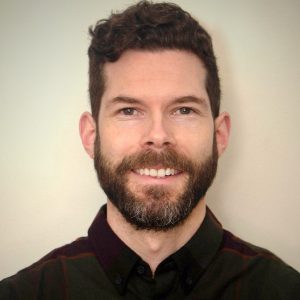
Exploiting the magnetic properties of blood to map brain function with magnetic resonance imaging: Magnetic resonance imaging, aka MRI, is a life-saving medical imaging technology. Typically known for its ability to provide exquisite anatomical detail, MRI has also been invaluable as a tool for non-invasively mapping the brain’s functional organization (like, which part of the brain is responsible for me never remembering people’s faces?!). In this talk, Dr. Berman will discuss his lab’s research and describe the fruitful collaboration between physicists, engineers, doctors, and neuroscientists that has enabled this revolutionary technology. Dr. Berman is an Assistant Professor in the Department of Physics at Carleton University and a Scientist at the University of Ottawa Institute of Mental Health Research. He directs the Functional Neuroimaging Physics Laboratory, which mines the MRI signal to provide quantitative measurements of physiological tissue properties, such as blood flow and metabolism, and applies these techniques to characterize the brain in health and illness. For further information, please visit his research website (https://bermanlab.physics.carleton.ca)
Linsday Leblanc – Quantum Technologies
JOIN THE LIVESTREAM View the recording
Tuesday, 26 August, 6:00PM Eastern

With the explosion of excitement around quantum technologies in the past few years, a variety of systems and platforms are being explored for applications in quantum sensing, communications, and computation. Atoms, as canonical quantum objects, offer many advantages for these technologies, including their identical physical properties in all locations and implementations, their distinct and well-known quantum transitions, and strong interactions with electromagnetic fields. At the University of Alberta, Lindsay LeBlanc’s laboratory explores how neutral alkali atoms can be used, ranging from fundamental studies of multilevel quantum control and the composition of many-body quantum matter, to applications-focused implementations including quantum memories and quantum magnetometry.
Stephane Virally – Quantum Optics
Tuesday, 16 September, 6:00PM Eastern
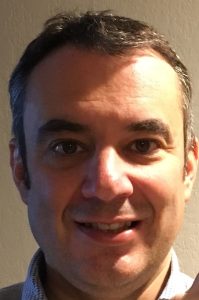
Shedding New Light on Quantum Optics: Multicolor Photons and Bright States
Matthias Danninger – Neutrino Physics with P-ONE
JOIN THE LIVESTREAM View the recording
Tuesday, 14 October, 6:00PM Eastern
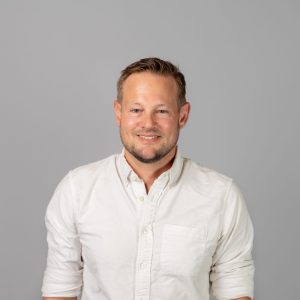
The Pacific Ocean Neutrino Experiment: Professor Matthias Danninger is an experimental particle physicist currently working with the ATLAS experiment at the LHC and the Pacific Ocean Neutrino Experiment (P-ONE) in Canada. Every time researchers have pushed the energy boundary in particle physics we have found something new about our Universe. Recently, IceCube has demonstrated that Neutrino Telescopes can use neutrinos from the cosmos as excellent tools to continue this exploration. To unlock the true potential of this field, advanced detectors are needed that will push the forefront of the cosmic frontier, revealing new knowledge of extreme astrophysical phenomena, including through multi-messenger follow-up programs, and testing fundamental physics at scales well beyond those reachable by Earth-bound accelerators. We aim to construct one of the largest neutrino telescopes deep in the northern Pacific Ocean off the coast of British Columbia, P-ONE. The first detector line is currently being integrated at TRIUMF – marking the start of an exciting phase for this new project.
Heather Logan – Theoretical Particle Physics
JOIN THE LIVESTREAM View the recording
Tuesday, 21 October, 6:00PM Eastern
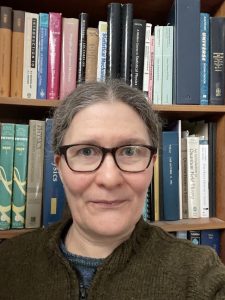
Symmetries are the key organizing principle in particle physics, but many apparent symmetries of nature turn out to be only approximate. How do we know where the effects of broken symmetries will turn up? In this talk, Dr. Logan will give a brief tour of CP violation and describe how it can manifest in a model with extra Higgs bosons in order to illustrate some of the calculation techniques being used by theoretical particle physicists to understand the structure of theories beyond the Standard Model. Dr. Logan is a Professor in the Department of Physics and a member of the Theoretical Particle Physics group at Carleton University.
Stef Czischek – Quantum AI
Tuesday, 28 October, 6:00PM Eastern
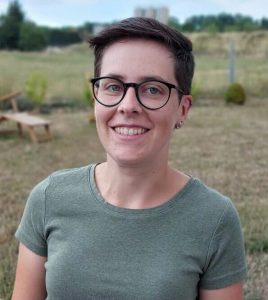
The optimized and efficient control of experimentally realized quantum systems is becoming increasingly crucial in the current era of quantum science and technology. Progress in fields like quantum computation, simulation, cryptography, sensing, or metrology depends strongly on the precise preparation, control, and understanding of quantum systems. At the same time, artificial intelligence has demonstrated remarkable success across a wide range of applications, including both classical and quantum physics. In this talk, I will show how artificial intelligence can optimize the control of quantum experiments, enable efficient evaluation of experimentally prepared states, and uncover detailed insights into quantum many-body physics. By highlighting the strengths of different artificial intelligence algorithms for specific tasks, I will illustrate how harnessing artificial intelligence opens new opportunities for control and discovery in quantum research.
Jayanne English – Astronomy + Art
Tuesday, 4 November, 6:00PM Eastern
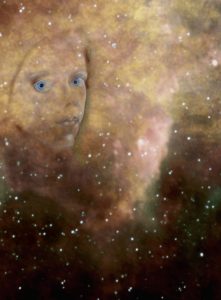
Can one blend together more than one passion into a science career? Dr. Jayanne English’s astronomy career blends visual art with astrophysics. Investigations of gas motions, magnetic fields, and radiation processes in galaxies will illustrate how a passion for art can be leveraged to: create scientific visualisations that strongly enhance discovery-based science; compose bold-colour, engaging public outreach images; and generate collaborative visual projects with established artists.
Dr. Jayanne English (University of Manitoba) received the 2021 Qilak Award for public outreach and the Order of Canada in 2023 for interfacing artistic literacy and aesthetics with scientific visualization. Before becoming a professor, she facilitated NASA’s Hubble Heritage Project. She received her PhD in Astronomy and Astrophysics at the Australian National University, a BSc in Physics and Astronomy from the University of Toronto, and graduated from the Ontario College of Art and Design University. She is currently a Senior Scholar.
Chris Ruiz – Nuclear Astrophysics
Wednesday, 12 November, 6:00PM Eastern
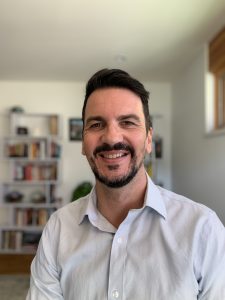
Nuclear Astrophysics is the study of the evolution of stars from the perspective of atomic nuclei, and the formation of the chemical elements in our universe. The focus in the field is currently on the role of exotic, short-lived nuclei that are difficult to produce in the laboratory, requiring state-of-the art production facilities and particle accelerators. In Canada, TRIUMF hosts the ISAC (Isotope Separator and Accelerator) facility, and is on the cusp of finishing ARIEL (Advanced Rare Isotope Laboratory). At these facilities, Chris Ruiz and collaborators use devices such as DRAGON and TUDA, to directly measure nuclear reactions on rare exotic nuclei under stellar conditions, providing critical input to modern stellar models. Discover how and why exotic nuclei are important for stars, how we produce them in the lab and accelerate them to stellar speeds, and how we measure their interaction with other “star stuff”.
